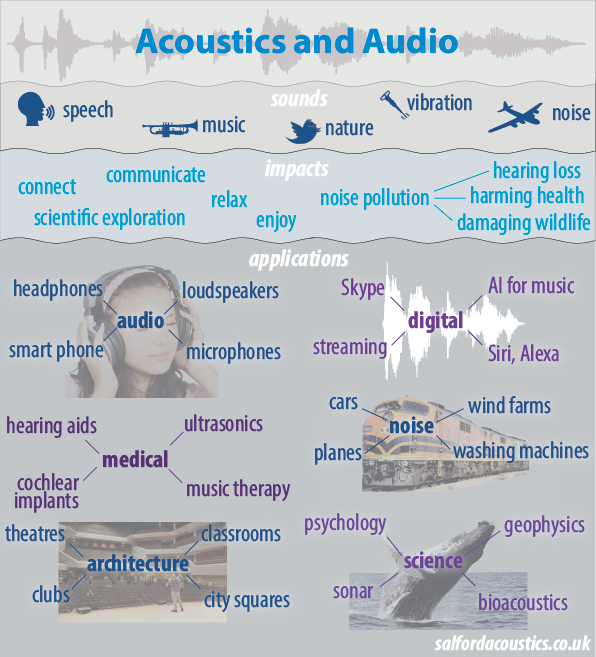
Acoustics is the science of sound. Sound is central to our lives, and so it cuts across many different scientific and engineering disciplines. You probably own a mobile phone that is stuffed full of audio engineering to make it work as a phone, music player and video recorder. But acoustics goes beyond audio to include the design of classrooms for good communication between teacher and pupils, ultrasonic imaging in medicine, the control of noise from machines, etc.
Where there is sound you’ll find acoustic scientists studying it. What can you hear now? I can hear the rumble of traffic and warble of birdsong from outside. For traffic noise, acoustic scientists might be researching whether this causes mental health problems. For birdsong, acousticians might monitor biodiversity by analysing recordings of the dawn chorus. You’ll find out more about what an acoustic scientist does on Wikipedia.
Acoustical and audio engineers apply scientific understanding to improve how things sound. Audio engineers might create better bass from a bluetooth loudspeaker by understanding how loudspeakers vibrate and people perceive music. Acoustical engineers might work to quieten machines such as cars, fridges and wind farms, by understanding how sound is created and how people respond to the noise.
You’ll find much more about what acoustical and audio engineers do on these Wikipedia pages: Acoustical engineer and Audio engineer (R&D).
Our career pages have more on what degrees to study and what jobs you might do in Acoustics and Audio.
Image credits
Download infographic
CC BY-SA 3.0, please attribute with a link to this page